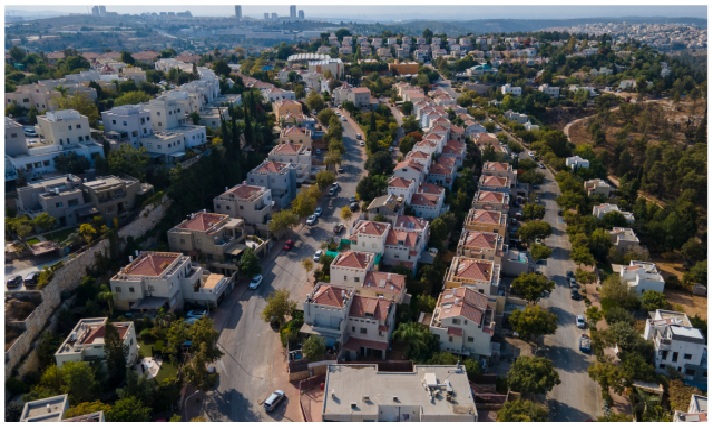Laura Kelly
WASHINGOTN: Secretary of State Antony Blinken on Monday criticized a decision by Israel’s government to recognize at least nine settlements in the West Bank as part of Israel, saying such a move worsens tensions with the Palestinians.
Blinken, in a statement, said the moves to legally authorize such settlements, which had previously been identified as illegal communities, “exacerbate tensions and undermine the prospects for a negotiated two-state solution.”
“We are deeply troubled by Israel’s decision yesterday to advance reportedly nearly 10,000 settlement units and to begin a process to retroactively legalize nine outposts in the West Bank that were previously illegal under Israeli law,” Blinken said in the statement.
“As I have previously stated, anything that takes us away from the vision of two states for two peoples is detrimental to Israel’s long-term security, its identity as a Jewish and democratic state, and to our vision of equal measures of security, freedom, prosperity, and dignity for Israelis and Palestinians alike,” the statement continued. “We call on all parties to avoid additional actions that can further escalate tensions in the region and to take practical steps that can improve the well-being of the Palestinian people.”
Israeli Prime Minister Benjamin Netanyahu said in a statement Sunday that the security cabinet had unanimously decided to authorize nine communities in the West Bank and also called for new construction of residential units.
The decision is not expected to take place immediately. The Israeli government will need to prove to Israel’s Supreme Court that the settlements are not built on private Palestinian land, The Times of Israel reported; two of the settlements listed by Netanyahu were already ruled to be illegal and built on private Palestinian land.
Most of the international community has long viewed Israeli settlements in the West Bank as illegal and criticized their expansion as threatening efforts at negotiating a two-state solution with the Palestinians.
The former Trump administration reversed the long-standing U.S. legal view on the settlements, with former Secretary of State Mike Pompeo saying the State Department did not view Israeli settlements as “inconsistent with international law.”
The Biden administration, while not appearing to reverse that view, has characterized Israel advancing any settlement activity as a provocation that undermines efforts to advance a two-state solution.
The Israeli prime minister said that the announcement was taken in response to recent, high-profile terrorist attacks that have occurred in Jerusalem.
Two of the most recent attacks that killed civilians included a car-ramming at a bus stop in Jerusalem last Friday, in which a 6-year-old child and 20-year-old man were killed. The driver, who was shot and killed by Israeli police, was identified as a 31-year-old who was a resident of a predominantly Palestinian village in east Jerusalem, according to Israel’s police.
And at least seven people were killed in a shooting attack targeting a synagogue in Jerusalem late last month. The gunman was identified by Israeli security officials as a Palestinian from a village in east Jerusalem.
The terrorist attacks have occurred in an atmosphere of increasing deaths among Palestinians, with 2022 categorized as the “deadliest year for Palestinians in the West Bank,” according to the United Nations special coordinator for the Middle East peace process.
Israeli security forces have focused on confronting a growing threat posed by armed Palestinian groups in the West Bank that have flourished amid a security vacuum, with Palestinian security forces largely absent from Palestinian Authority-controlled cities of Nablus and Jenin.
While Israeli security forces have killed who they describe as Palestinian terrorists amid frequent security raids into these cities, many Palestinian civilians have also been killed and wounded in the crossfire.
Courtesy: thehill







